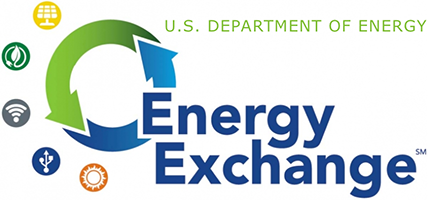Pittsburgh, PA

Federal agencies are required to report on annual progress made toward efficiency mandates under the National Energy Conservation Policy Act (NECPA). What are the different reporting requirements? What tools are available to help with reporting? What best practices are used to enhance reporting accuracy and decrease labor efforts? How are the results of agency reporting used? Effectively managing reporting processes requires a holistic approach, robust data management, and a commitment to sustainable practices throughout an organization. This workshop provides the participants practical guidance to navigate FEMP reporting, CEQ Sustainability Plan, tools to ensure accuracy and accountability, and insights into using data to make informed decisions to meet federal reporting requirements.
Instructors
Chris Tremper, Program Analyst, FEMP Read Bio
Chris Tremper has more than 25 years of experience providing analytical support to the U.S. Department of Energy's Federal Energy Management Program (FEMP). From 1990 to 2008, he managed multiple energy analysis contracts supporting FEMP, the U.S. Department of Agriculture, the U.S. Department of Homeland Security, and the U.S. Forest Service. He has developed and implemented energy data reporting protocols that have endured for more than a generation, accommodating the evolving needs and policy goals during that time. Tremper joined FEMP as a federal government employee in 2008. Most recently, he provided key data and analytical support to the White House Council on Environmental Quality to help frame new federal goals and assisted agencies in revising greenhouse gas reduction targets under Executive Order 13693. Tremper has a bachelor's degree from Wittenberg University in Springfield, Ohio.
Emily Conner, Senior Sustainability Program Manager, General Services Administration Read Bio
Emily Conner is a Senior Sustainability Program Manager in the General Services Administration's Public Building Services (PBS) Climate & Sustainability Division (C&S). She has implemented sustainability and energy policy and reporting through her work at three agencies over the last 9 years, including GSA, FBI, and FAA. Emily helps lead the C&S Division's greenhouse gas and climate risk programs, which produces the annual energy management report and recently helped launch the PBS Sustainability Implementation Plans. She recently led the effort to develop a Framework for Building Performance Standard (BPS) Electrification Prioritization, which was used to create an initial list of applicable buildings for electrification and identify feasibility to meet the 30% BPS goal as part of GSA's FY24 Sustainability Strategic Plan. Emily has a bachelor's degree in interdisciplinary studies from American University and a Master of Environmental Management degree with a focus in Energy & Environment from Duke University.
Madeline Reeves, Deputy Chief Sustainability Officer, Council for Environmental Quality Read Bio
Madeline (Maddi) Reeves is the Deputy Chief Sustainability Officer in the Office of the Federal Chief Sustainability Officer, which is a part of the White House Council on Environmental Quality (CEQ). In this role, where she works across the White House, Federal Government, and industry on sustainability topics ranging from low-embodied carbon construction materials to clean electricity. Prior to joining CEQ, Maddi served as a Presidential Management Fellow at the Department of State, where she focused on public-private partnerships for clean energy and international climate finance. Before joining the Federal government, Maddi spent time at a venture capital fund focused on clean technologies, at the Bill & Melinda Gates Foundation as part of its strategy team, and as a management consultant. Maddi holds a master's degree in public policy from Harvard University, a master's degree in business administration from Northwestern University, and a bachelor's degree from the University of Michigan.
Smita Gupta, Director for Federal Facility Decarbonization, White House Council on Environmental Quality Read Bio
Smita Gupta is the Director for Federal Facility Decarbonization at the White House, Council on Environmental Quality in the Office of the Chief Sustainability Officer, where she works on coordination, planning, and implementation activities to advance sustainability across the Federal building portfolio primarily in support of EO 14057. She is currently on detail from New Buildings Institute, where she has been Director for Building Innovation. Smita has been involved in building energy policy, programs, technology and research for over 25 years. She worked at the California Energy Commission in the Title 24 Building Standards office and the statewide solar incentive program. She also worked in private industry at Itron, a smart meter technology company, in energy consulting as well as product management for the DR controls platform for behind the meter optimization analytics. Smita is a LEED AP with degrees in Architecture and Building Science.
Shawn Bennett, Director for Clean Energy, White House Council on Environmental Quality Read Bio
Shawn is Director for Clean Energy at the White House Council on Environmental Quality where he leads the Administration's efforts to power all Federal facilities, collectively the largest buyer of electricity in the nation, with 100 percent carbon-free electricity by 2030. Previously, Shawn served as Innovation Chief with the US Air Force Office of Energy Assurance where he partnered with industry and leveraged third party financing to enhance resilience at Air Force installations through the deployment of distributed generation and microgrids. Earlier in his career, Shawn supported the development of clean generation resources in wholesale electricity markets at FERC, including as a Commissioner advisor, and also served as Peace Corps volunteer in Nepal. Shawn holds a Master of Arts in International Economics from the Johns Hopkins School of Advanced International Studies and a Bachelor of Science summa cum laude in Mechanical Engineering from the Georgia Institute of Technology.
Learning Objectives
Upon completion of this course, attendees will be able to:
- Identify federal requirements for reporting cycles and progress sharing;
- Recognize the importance of reports such as the Annual energy report, the CEQ sustainability plan, CFE plan, ZEV plans, ESPC related reports etc.;
- Identify Executive Order level reports like Climate Action Plan;
- Identify Zero emission vehicle procurement and deployment reports. 5. Recognize tools and trainings available.









